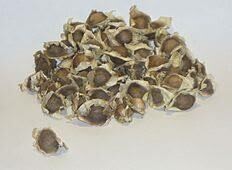Moringa Tincture
SKU 7000822117-400
$28.00
Size
In stock
Save this product for later
Moringa Tincture
Product Details
Weight: 1.69 g
MORINGA- The leaves are rich in vitamin C and other antioxidants, have a sharp taste and are used in cooking, however the nutritional values are what everyone goes for today. It is frequently used as a supplement in tinctures or added to smoothies, sauces and other recipes as a powder. Moringa is a natural antibiotic, is a plant with many uses and health benefits. Its anti-inflammatory, antimicrobial, antioxidant, cardiovascular, and hepatoprotective properties make it useful in the treatment of some diseases. It is rich in phytonutrients that are effective in helping to build a strong immune system, essential in the fight against disease. It helps in the improvement of the cellular immune response, the number of total leukocytes and antibodies. Antibiotic and antibacterial properties, and exerts inhibitory effects on the growth of various pathogens naturally. The quercetin and chlorogenic acid content, provides a high amount of antioxidants which help fight cell-damaging oxidation generated by free radicals, associated with aging processes and degenerative diseases. The chlorogenic acid in Moringa is credited with the ability to lower blood sugar levels after meals. Nutritional value (per 100 grams of fresh leaves), Proteins (g) 6.7, Carbohydrates (g) 13.4, Lipids (g) 1.7, Humidity (g) 75 Fiber (g) 0.9, Calcium (g) 0.44, Phosphorus (g) 0.07, Potassium (g) 0.259, Iron (g) 0.007, Magnesium (g) 0.024, Vitamin C (mg) 220, Vitamin A (mg) 3.39, Vitamin B1 (mg) 0.21, and Vitamin B2 (mg) 0.05.
Display prices in:MXN

